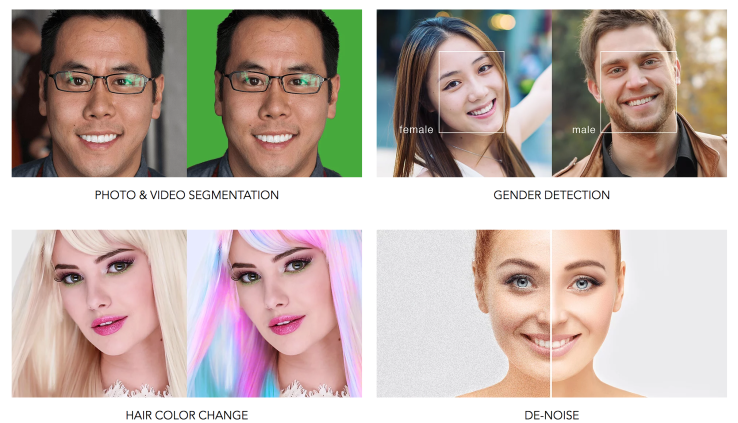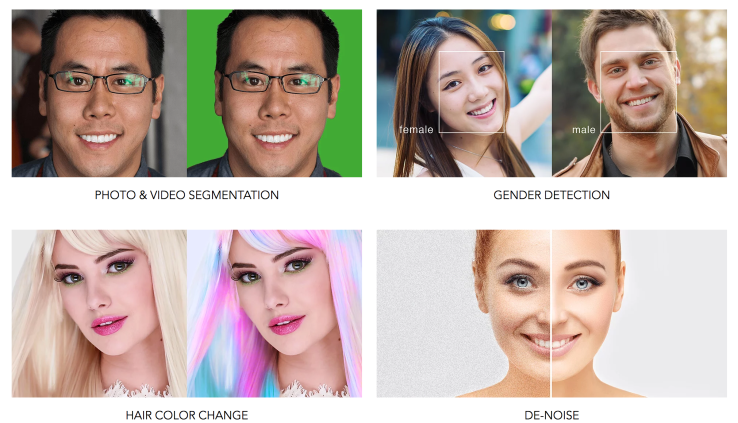

Computer vision — the branch of artificial intelligence that lets computers “see” and process images like humans do (and, actually, often better than us), and then use those images to help run programs — is at the heart of how the next generation of tech is developing, and this week Google made an acquisition this week to help it along with its own efforts in this area.
The search and Android giant has acquired AIMatter, a startup founded in Belarus that has built both a neural network-based AI platform and SDK to detect and process images quickly on mobile devices, and a photo and video editing app that has served as a proof-of-concept of the tech called Fabby.
We’d had wind of the deal going down as far back as May, although it only officially closed today. Fabby and Google have confirmed the deal to us and there should be a statement posted on AIMatter’s site about the news soon (update: it’s up). A Google spokesperson provided TC with a short statement: “We are excited to welcome the AIMatter team to Google.”
Terms of the sale are not being disclosed, but we understand that Fabby — which has had over 2 million downloads — will continue to run, and from what we understand most of AIMatter’s employees will come over to Google. AIMatter had people working in Minsk, the Bay Area, and Zurich (Switzerland being particularly strong in computer vision tech, see here, here, and here). It’s not clear yet if the staff will stay where they are now or relocate elsewhere, or what else they will be working on for Google.)
Fabby had raised around $2 million in funding with backers including Haxus, a venture fund that backs artificial intelligence startups; Yuri Melnichek, who started as the co-founder and chairman of AIMatter but now described as an investor and advisor (he’d also founded Maps.me and is himself an ex-Googler); and Andrei Kulik, who is AIMatter’s CEO.
Notably, Haxus also invested in MSQRD, which was acquired by Facebook; Maps.me, which was acquired by Mail.ru; and Prisma, the popular app that can turn any photo or video into a “painting” using filters in the style of different artists or artistic movements.
Prisma, I should note, is still independent (for now: we’d variously heard rumors that both Facebook and Snapchat had been interested in past months). But the rapid acquisition pace we’ve seen in this area is a testament to how in-demand computer vision technology is today. This isn’t just for fun apps that let you add dog ears and crazy hair colors to your photos — although, as Fabby, Prisma, Snapchat, Facebook and countless others have proven, filters can be a lot of fun. It’s also an essential component of new computing platforms for virtual and augmented reality applications, for autonomous driving and more.
As we said, it’s not clear where Google hopes to use this tech. The company has long been eyeing up how it can get more involved in the next generation of social applications, not just to build bigger audiences on these platforms but also to use them to build new frontiers in its advertising business.
When you consider how Snapchat has used photo filtering tech to great effect in its commercial strategy, that could be one area where Google is hoping to do more, too. But there are also Google’s efforts in VR and AR; and its work in building machine learning platforms like TensorFlow for developers to build their own apps using machine learning (AIMatter’s SDK could be notable here). In short, there are a lot of possibilities — not unlike the number of filters that Fabby has on offer.

